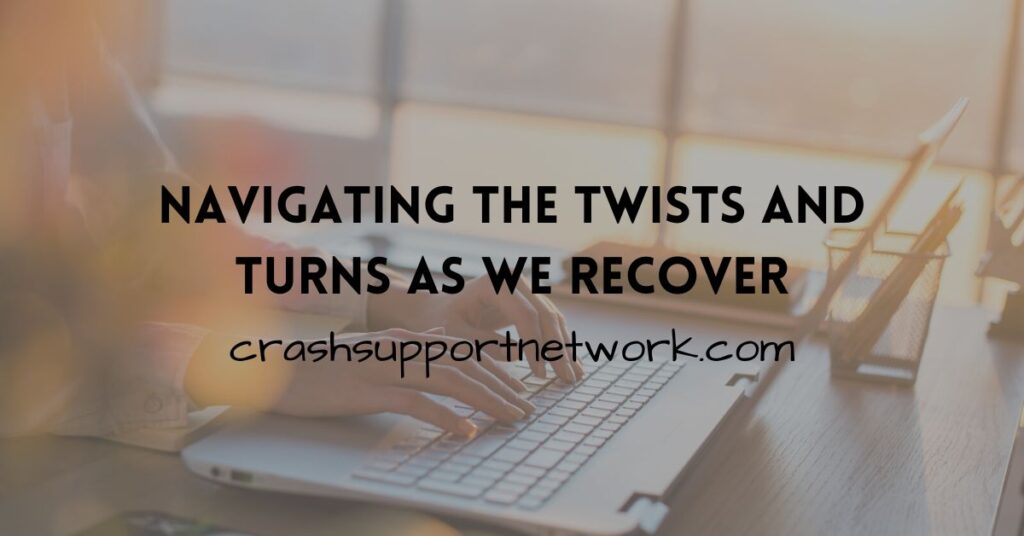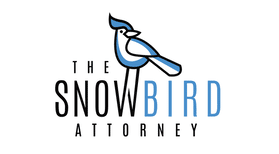
In an instant, life as you know it can be thrown into chaos. One moment, you’re on a familiar road, your mind on your destination, or perhaps wandering through the day’s events. The next, you’re thrust into a reality you never anticipated—one where you are recovering from injuries sustained in a motor vehicle crash which becomes your new way of life. This journey, as I’ve come to learn firsthand, is full of unexpected twists and turns, frustrations and set-backs.
Recovering from a motor vehicle crash is a journey filled with emotional highs and lows, physical challenges, and a resilience you never knew you had. It’s a path paved with doctor’s appointments, therapy sessions, and moments of profound gratitude mixed with periods of frustration and sadness. It’s never-ending at times and we often wonder if we will ever get better.
The Immediate Aftermath
The initial shock that follows a motor vehicle crash is a blur of sounds, sensations, and emotions. Sirens blare, people rush to your aid, and a flurry of questions with strange voices fill the air and perhaps, the deafening silence of shock. In those first moments, the focus is purely on survival, on the immediate need to address our physical injuries. But as time moves on, the reality of what happened begins to sink in, and so does the understanding that the road to recovery will be anything but straightforward.
Physical Recovery: The First Hurdle
The initial focus post-crash is, understandably, on physical recovery. The road to recuperation may involve surgeries, physical therapy, and major medical treatments. This phase is not just about physical healing but also about adjusting to new realities—learning to live with changes in one’s body, dealing with pain, and sometimes relearning basic movements. The psychological impact of physical recovery cannot be understated, as individuals often grapple with frustration, anger, and depression. Some days, we celebrate the milestones—taking those first unaided steps or noticing the pain has lessened. Other days, it feels like we have taken two steps back. Injuries can heal at a frustratingly slow pace, and new aches or limitations may emerge, demanding patience and perseverance.
The Emotional Rollercoaster
Surviving a motor vehicle crash doesn’t just leave physical scars; the emotional impact is profound. There are moments of intense gratitude for having survived, coupled with periods of deep sadness for what we have lost. Anxiety and fear can become constant companions, especially when faced with the prospect of driving again. It’s a process of mourning the old you to welcoming the new you that has emerged. This emotional journey is as critical to acknowledge and navigate as the physical healing process.
Financial Strain: The Hidden Injury
As if the physical toll weren’t enough, financial strain often follows closely behind. Medical bills can accumulate quickly, creating a burden that feels just as heavy as the physical injuries. For many, not being able to work adds to the stress, compounding financial worries with the loss of income. Navigating insurance claims adds another layer of complexity and this financial strain can extend for months or even years, significantly impacting one’s quality of life and recovery.
Legal Challenges: Seeking Justice and Compensation
For many crash survivors, engaging with the legal system becomes a necessary step towards recovery. This might involve pursuing compensation for medical expenses, lost wages, and other damages. Navigating the personal injury legal landscape often needs the assistance of a legal professional. This process can be lengthy and emotionally taxing, as it involves revisiting the trauma of the crash, negotiating with insurance companies, and possibly facing a court trial. The legal challenge is not just about financial compensation; for many, it’s also about seeking justice and accountability, which can be crucial for emotional closure. However, the unpredictability of legal outcomes, coupled with the slow pace of legal proceedings, can add to the stress and uncertainty of the recovery process.
The Power of Support and Building Resilience
No journey of recovery can be walked alone. The importance of a support system—be it friends, family, healthcare professionals, legal advocates or support groups—cannot be overstated. Sharing your story can also open a channel of support and connection with others who have experienced similar trauma, creating a community that uplifts and understands in a way few others can. Sharing experiences, receiving encouragement, and sometimes, simply knowing you’re not navigating this path alone can provide immense comfort and strength. Unexpected acts of kindness, understanding, and patience have been extremely helpful on some of the most darkest days for me.
Navigating the Twists and Turns
We often find ourselves navigating the unexpected twists and turns that life presents. Each step forward and each day of healing, is a victory in its own right. It’s essential to celebrate these milestones, recognizing the strength and resilience they represent. This journey demands a resilience that many never knew they possessed. The road to recovery is not just about healing physically; it’s about finding your way through the emotional and mental challenges that accompany it. It’s about learning to live with the twists and turns, accepting that while some days will be difficult, others will bring joy and progress.
To anyone walking this path, know that it’s okay to feel overwhelmed by the journey. Recovering from a motor vehicle crash is an undeniably daunting journey that extends far beyond the initial physical injuries. It’s okay to have days where you feel lost or stuck. But also know that with each step forward, no matter how small, you are moving towards a place of healing and strength. Surviving a motor vehicle crash is a testament to your resilience and your ability to face the unexpected twists and turns of life. You’re not alone. There’s a community of us in the Crash Support Network Group who understand the twists and turns, the ups and downs. We’re here, surviving, healing, and growing stronger together.
S. Dawne McKay is a survivor of a horrific crash that changed her life forever. Dawne shares her personal journey as a Crash Survivor Blogger and also collaborates with crash survivors as Guest Bloggers allowing them an opportunity to share their stories. Dawne is also the author of the book, “Talk Crash to Me – What to Expect After Surviving a Collision and How to Manage Your Recovery” which is available for purchase on Amazon.
The Crash Support Network is a unique one-of-a-kind website consisting of an online support group, a crash survivor blog, a quarterly newsletter, “Sharing Our Recovery” as well as highly informative articles. Our website is based on relationship-building and puts the needs of survivors first by creating a helpful resource for victims and survivors of motor vehicle crashes



